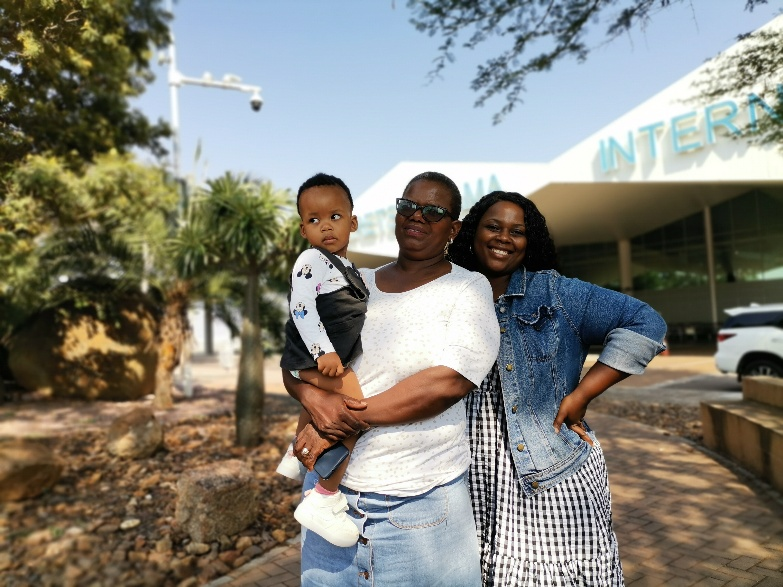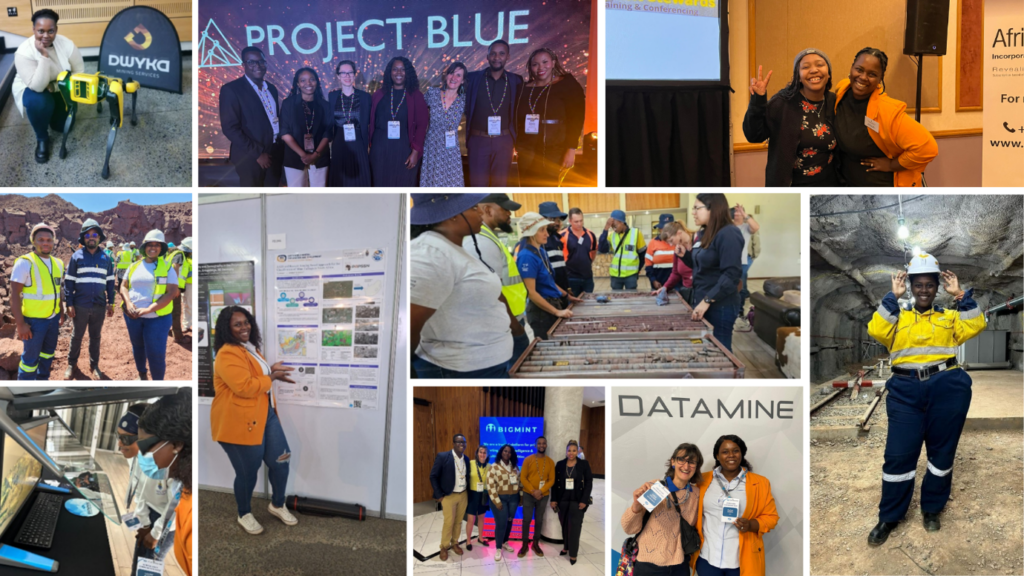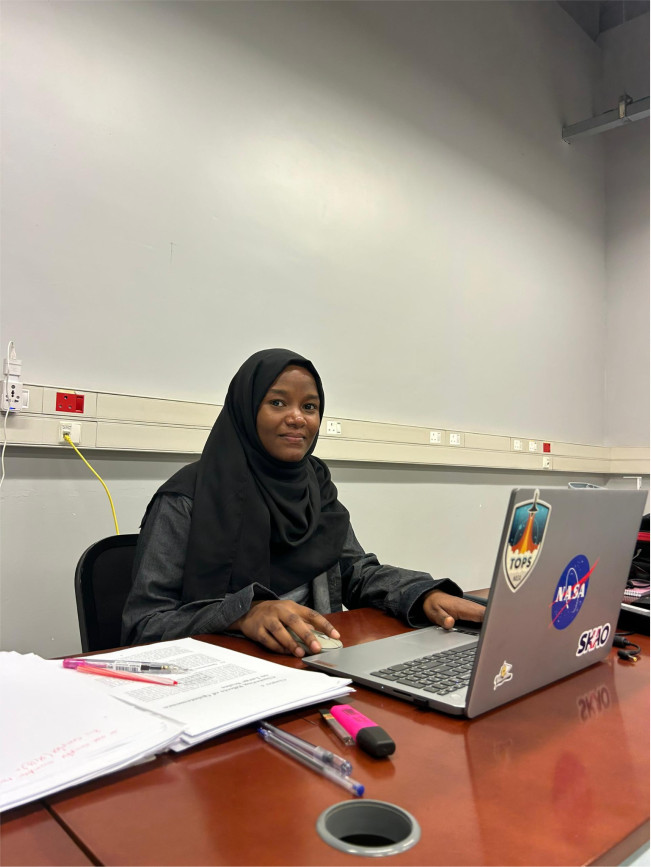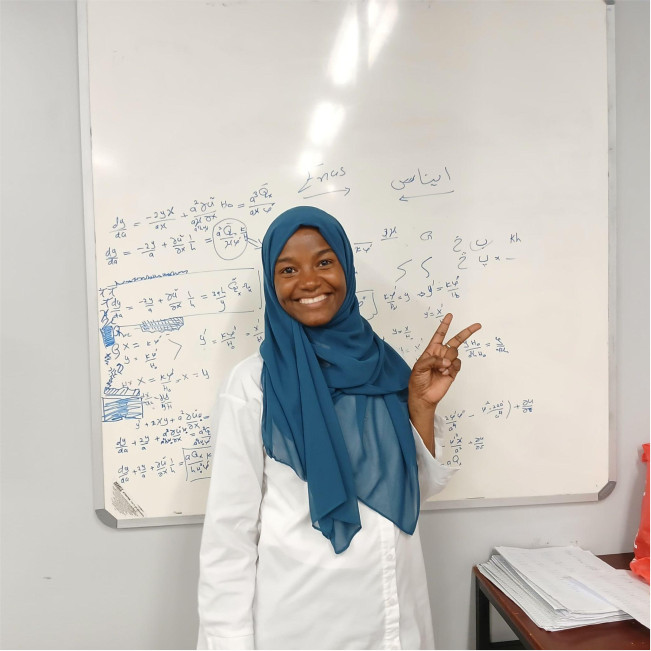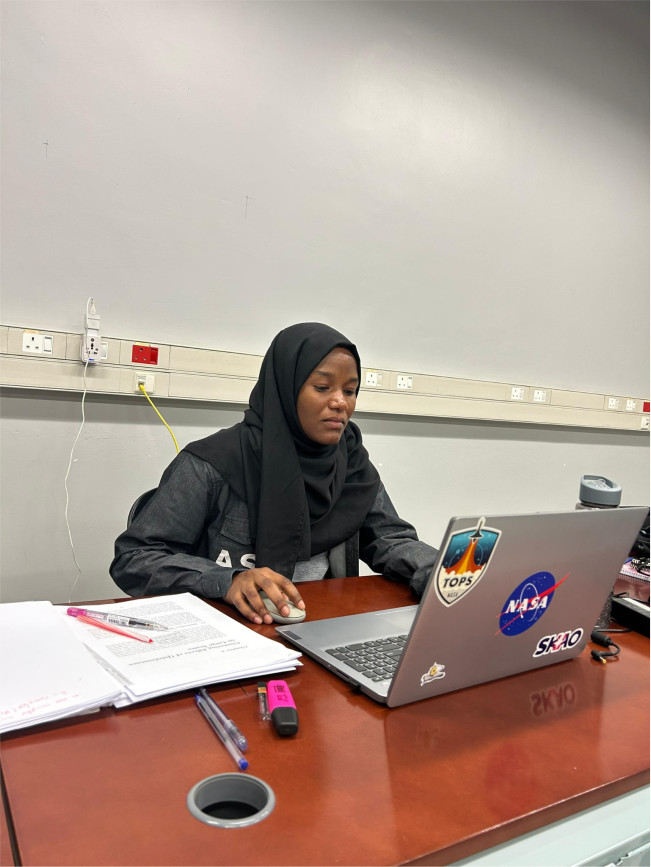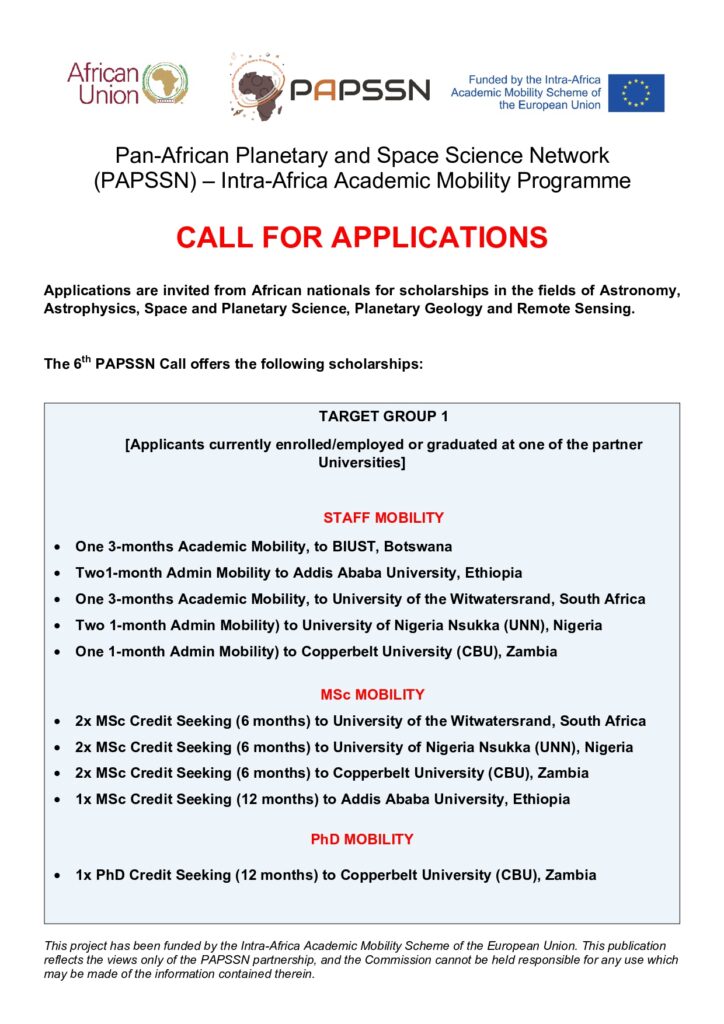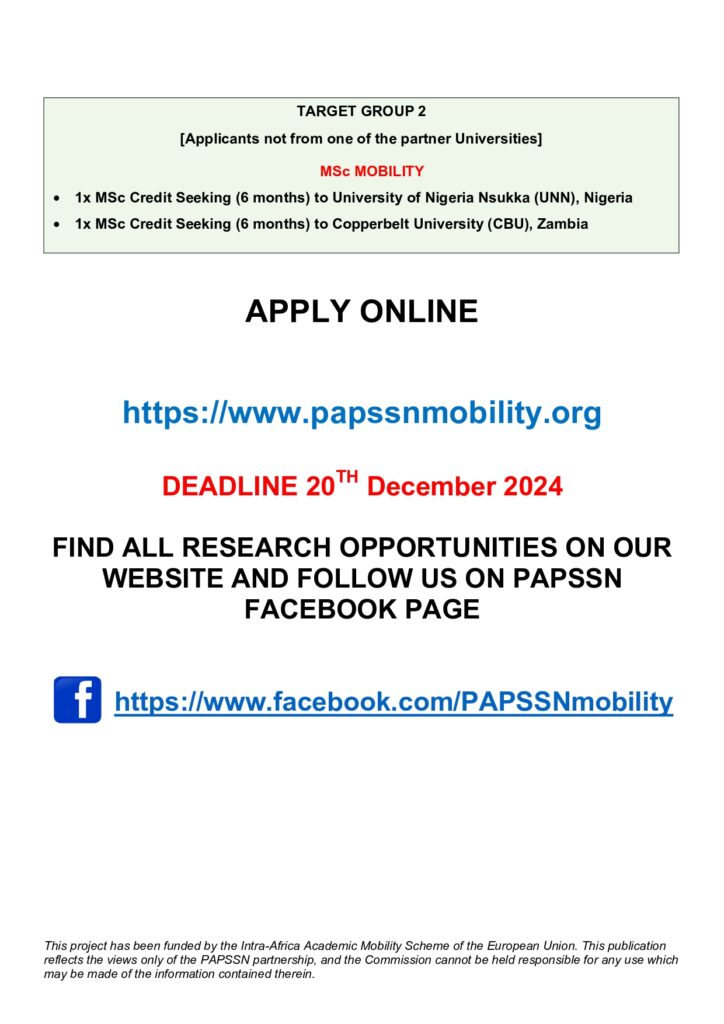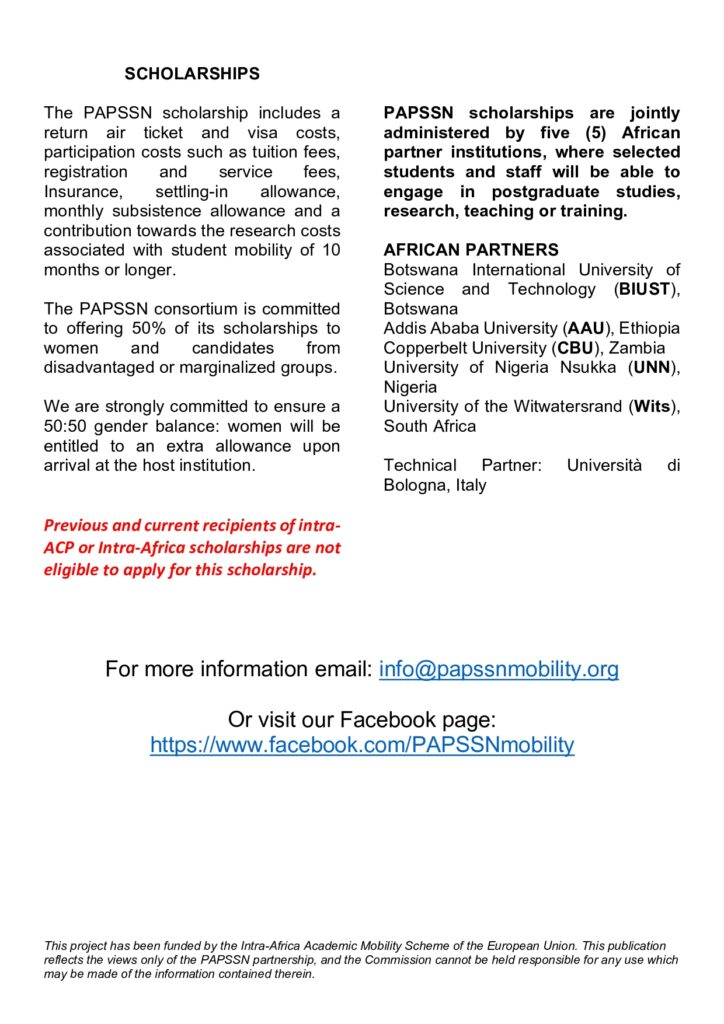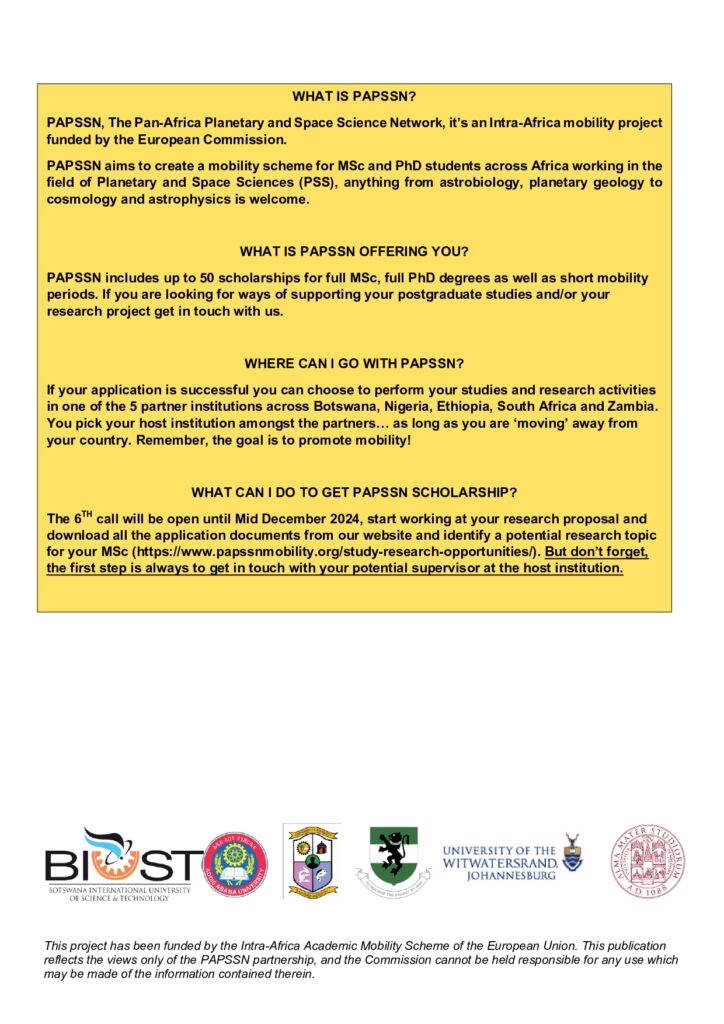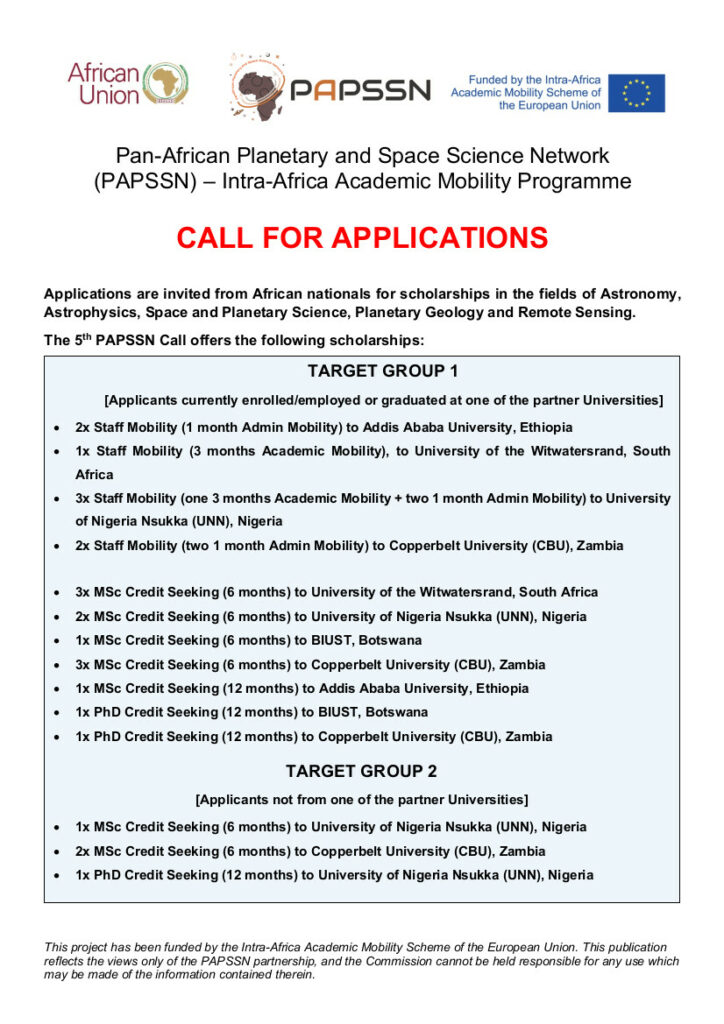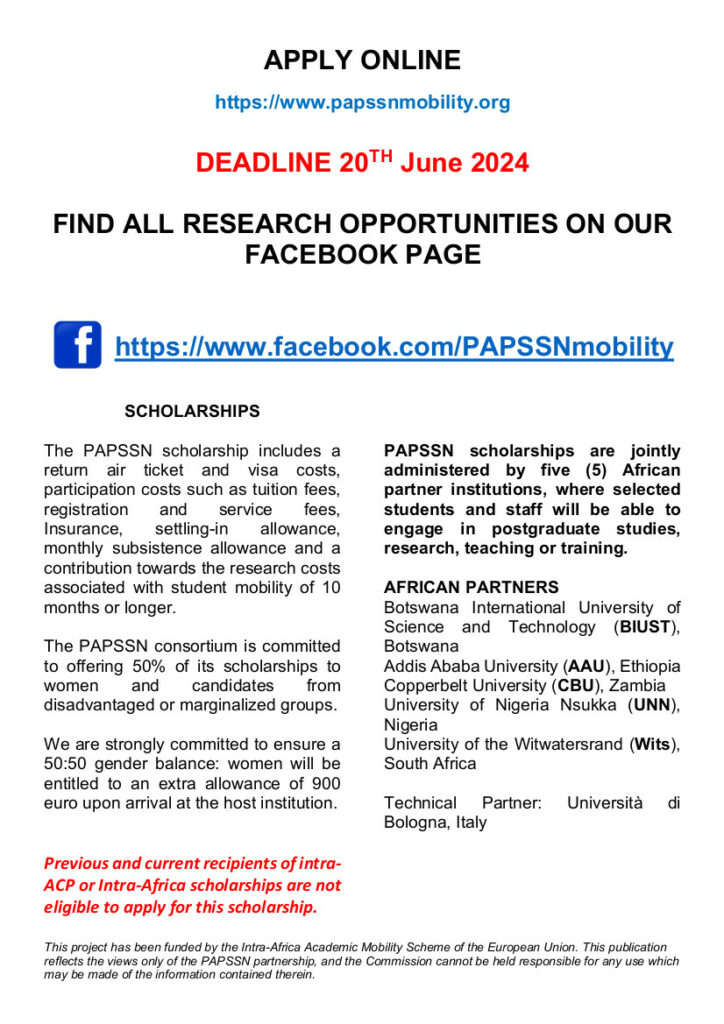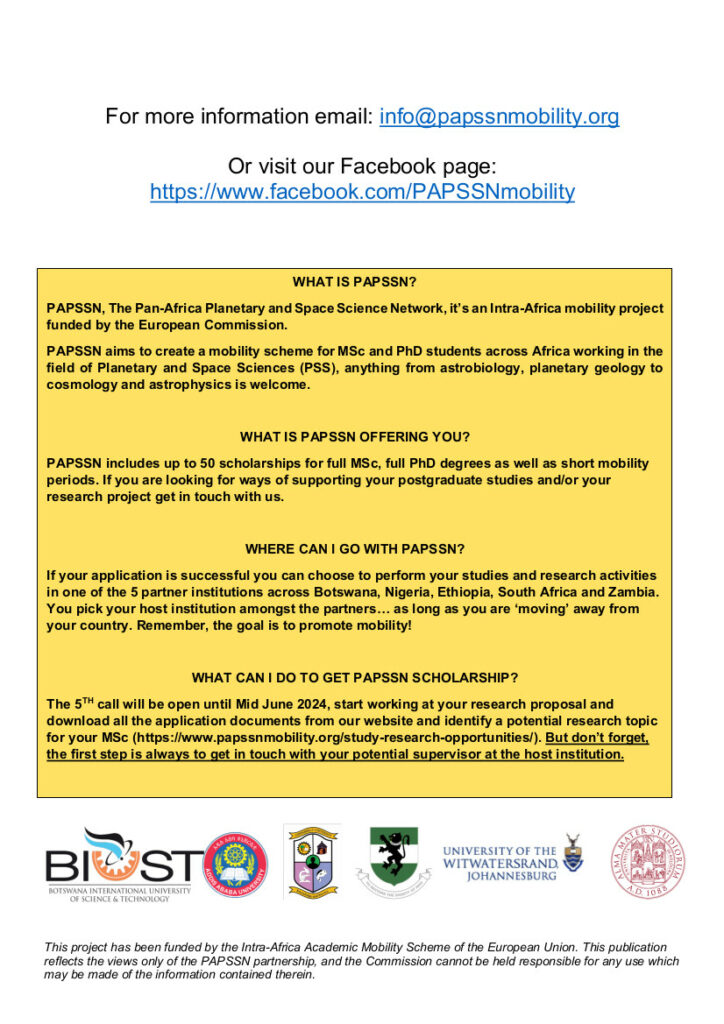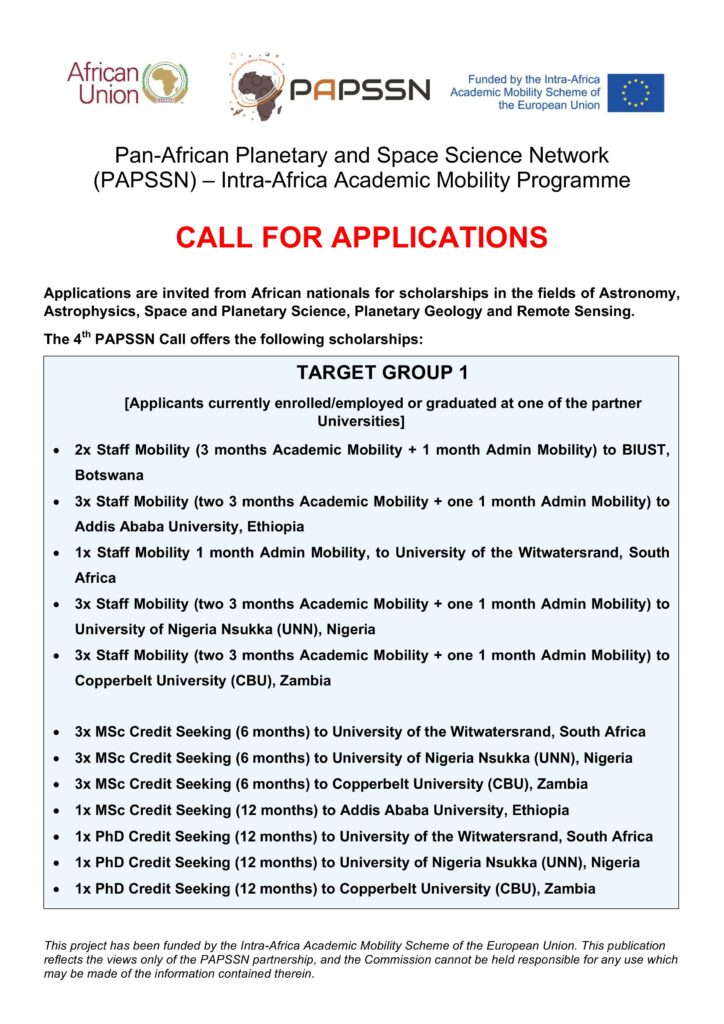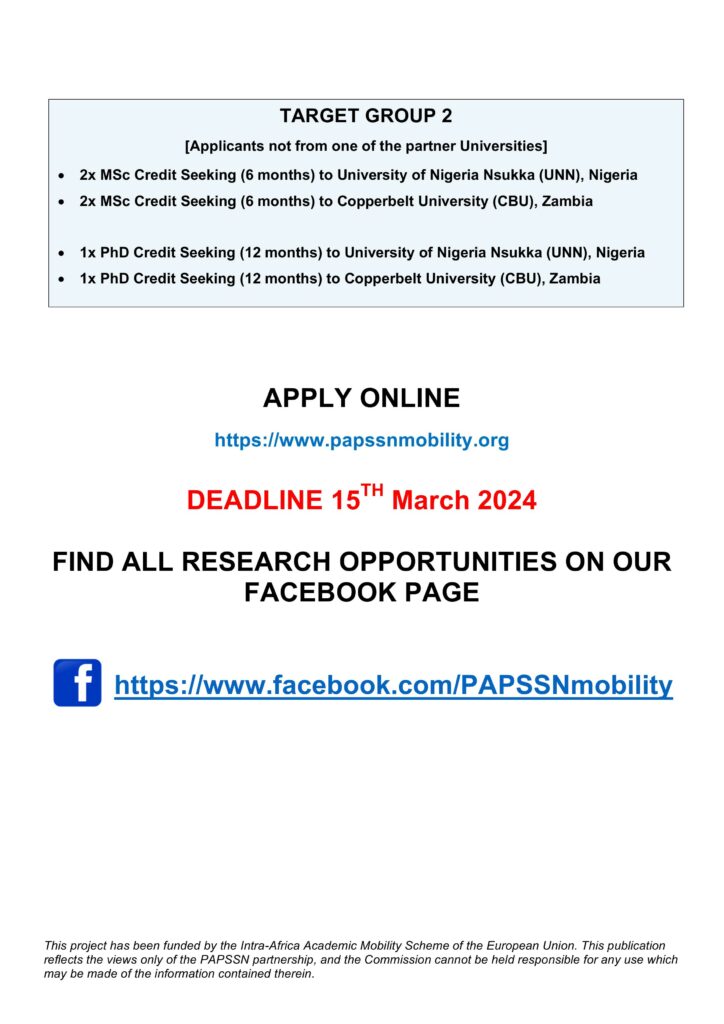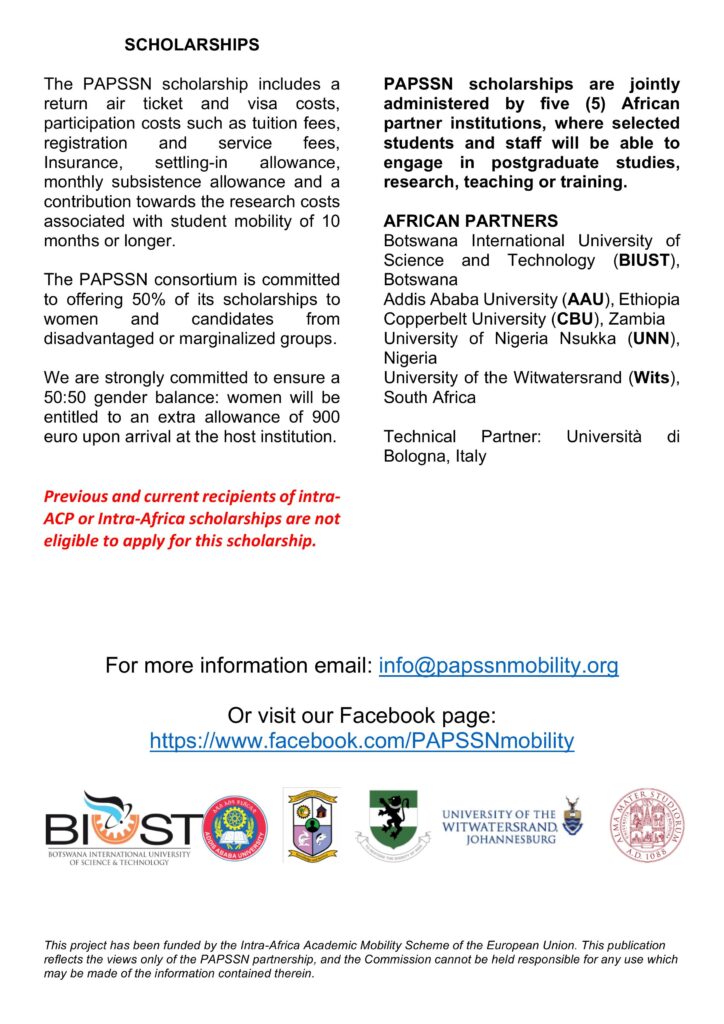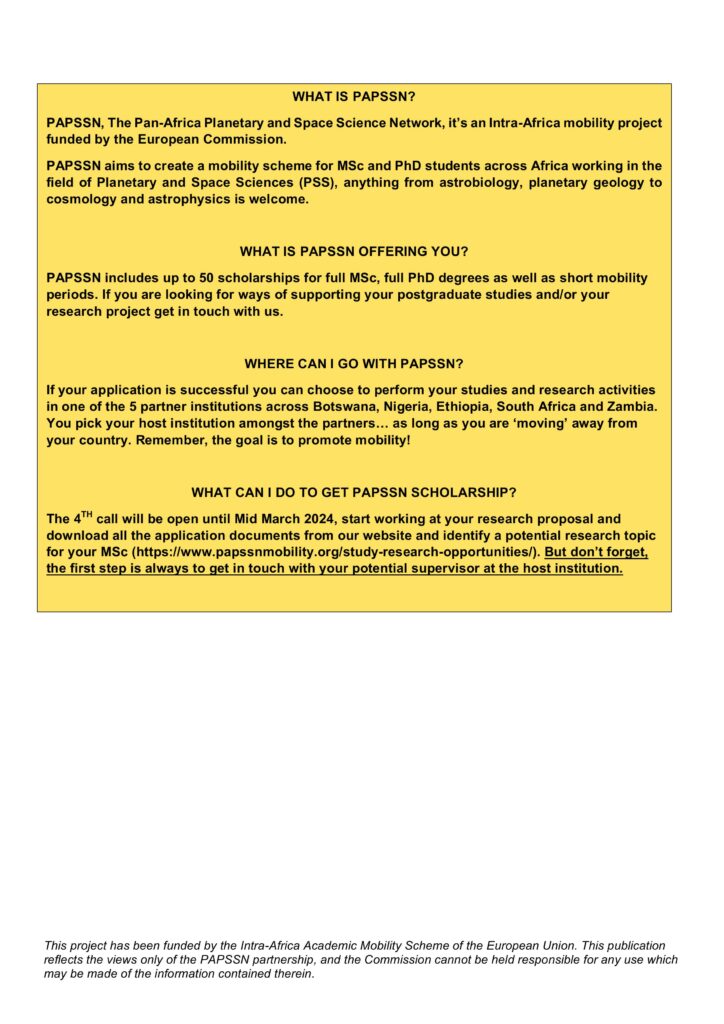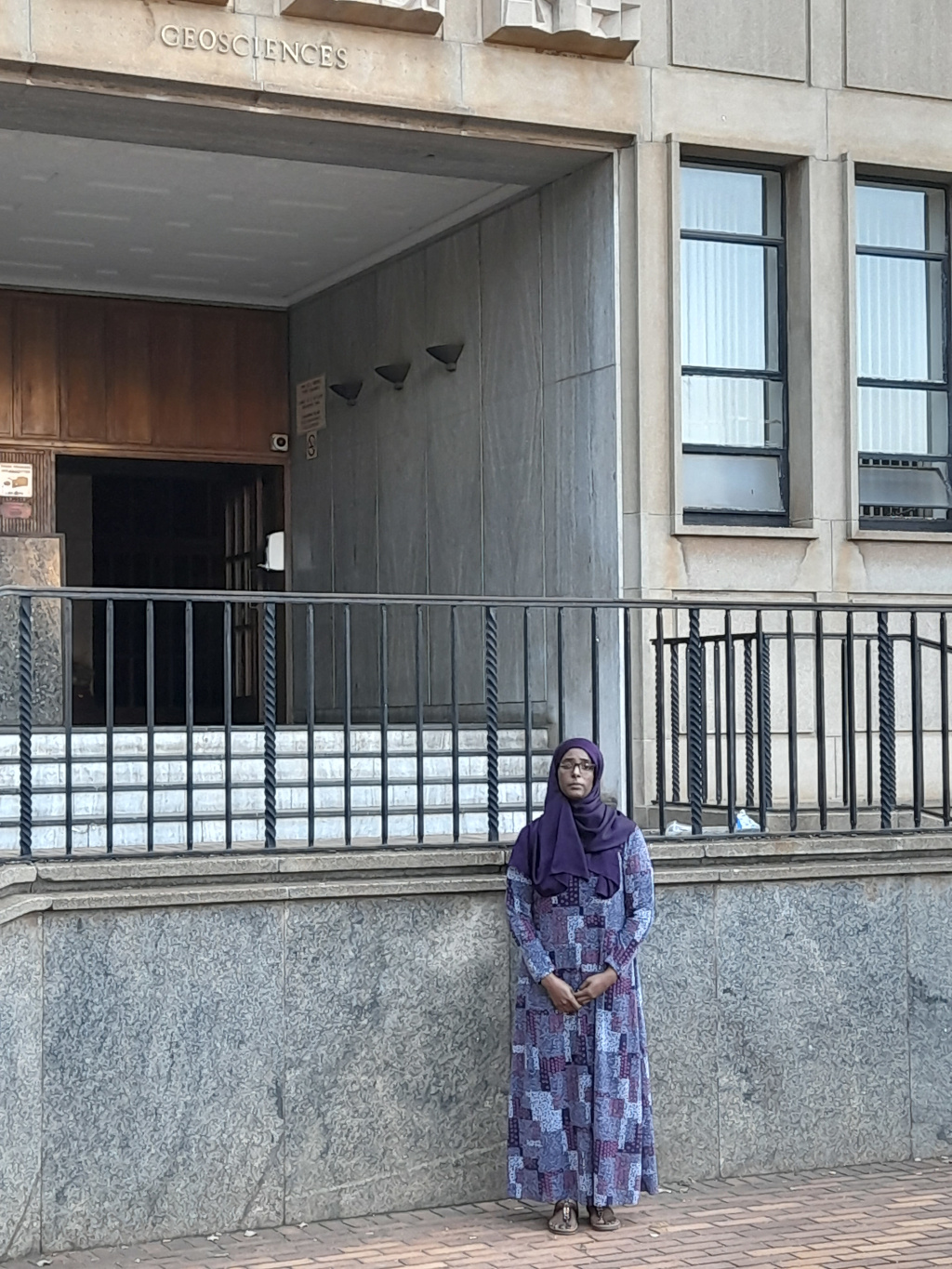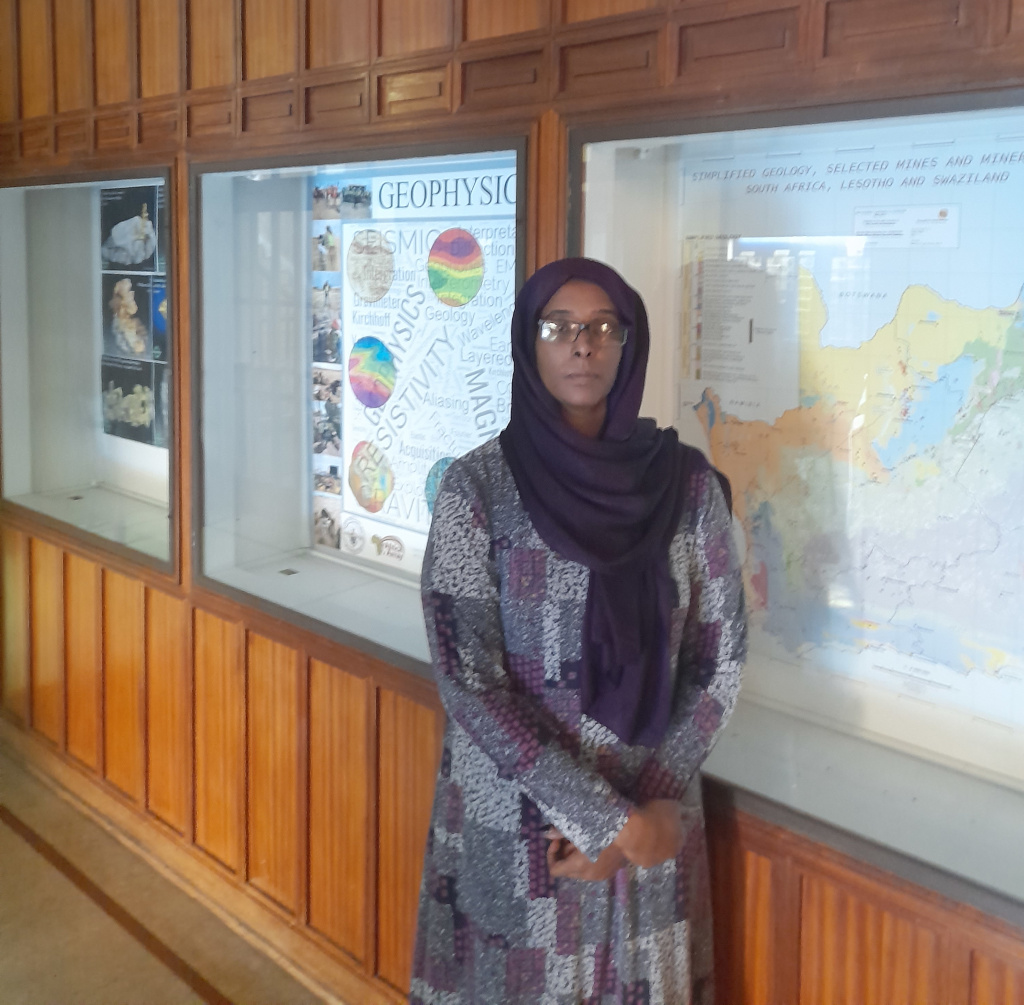Author: Trhas Hadush Kahsay.
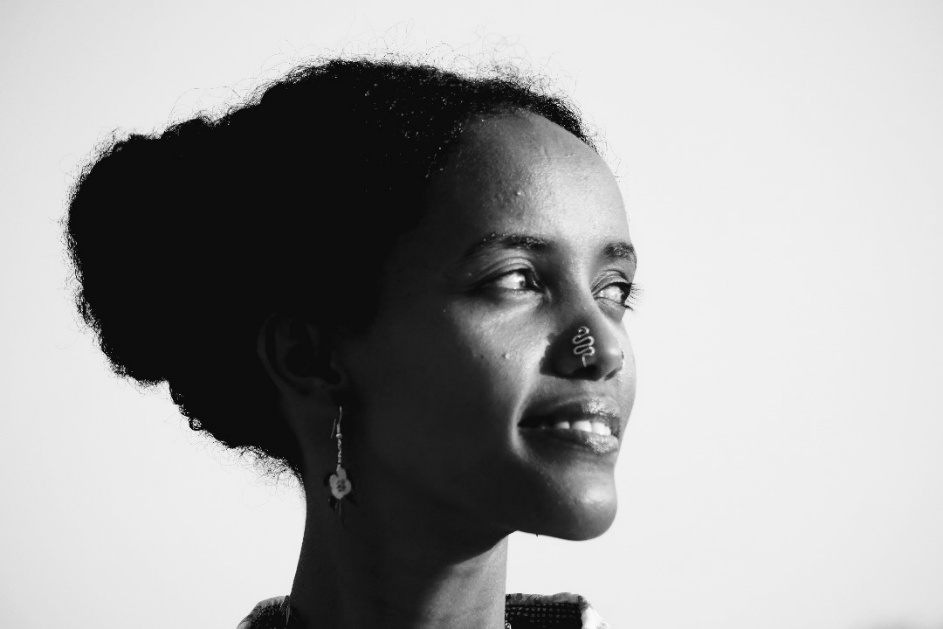
In September 2021, I was nominated for the PAPSSN nomination for the mobility program. Unfortunately, I heard this good news about my PhD scholarship from my friend too late.
The sun hadn’t yet risen in Tigray, Mekelle. Ethiopian and Eritrean troupes invaded the place. The network, internet, bank, and transportation were all blocked. I tried to contact my supervisor (Prof Franchi then at BIUST) every day by asking for help from the World Food Program and another NGO worker (e.g., Dr. Desalegn). They helped me check my email, but it was difficult, and they could help me only when I gave them my password and the details of my email account… I communicate them what to write and then they’d sent it to him. I waited for weeks in order to check for his replies. I spent long and exhausting months in this way, and I want to appreciate the patience of Prof Franchi. He always understood me and gave me hope; he said, “Don’t worry, we will find another way”. Imagine that. He wrote an email to the head office of the World Food Program Mr. Bernard and Mr. Levan, but they couldn’t help me. But that communication was essential, as they became enthusiastic about assisting me in gaining access to the internet for further communications.
I arrived in Botswana after overcoming numerous challenges. There have been days along my road when I have been stuck, confused by the overwhelming situation and unsure where to go or what path to take, I kept repeating myself ‘everything will pass’, and regardless of all the danger I am confident that my dreams will come true one day. I grew up in a culture that did not encourage education; everyone said, “Why are you taking this risk?”, but I didn’t care; I wanted to try it, I had to… Staying where I was meant facing inevitable hardship, and I had already lost my big brother and my dear friend “Hawaz” who once shared hopeful news with me. His fate served as a painful reminder of what could have happened if I had stayed. By taking this leap, I knew I had at least a 50% chance of success and that was worth fighting for.
“So, you want to go?” my father asked me in November 2022. “Yes, I want to try it and start my journey to achieve my goals”. I rushed to gather my things and drove out of Mekelle. Finally, I find that each little victory gives me the strength to push on when life gets tough. The situation forced me to make the difficult decision to leave my place, my family. I headed to the border and planned to use the invitation letter from BIUST to help me out of that situation as nobody was allowed out of Tigray. This would have been impossible without the help of PAPSSN and my great supervisor, Prof. Fulvio Franchi. It’s hard to find your way out of a war zone without money, hence he took the risk and he sent me 900 euros to get out of that situation safely. It was done, I was out of the war.
Life in Botswana
Finally, on January 14, 2023, I safely arrived in the peaceful country of Botswana. Already, my supervisor had assigned Ms. Portia from the International Linkages and Partnerships Department to pick me up at the airport in Gaborone. On campus, she prepared a room at the Botswana International University of Science and Technology (BIUST), Palapye. Once I was done with the accommodation and immigration processes for the student permit, I enrolled as a postgraduate student at BIUST. I was introduced to the another PAPSSN scholarship holders, and I have developed positive relationships with colleagues and my Makgadikgadi team. This relationship has helped me to overcome the hardships of my past life.
Writing my personal blog and tell my story to the world is one of many other things I wish to do. When I thought of starting a new life as a PhD student on my own in January, I was frightened. But I must always remember that I was troubled when I was on the worst journey of my life, and despite all those troubles now I am here writing this blog, sitting in a nice room in a peaceful and beautiful Botswana.
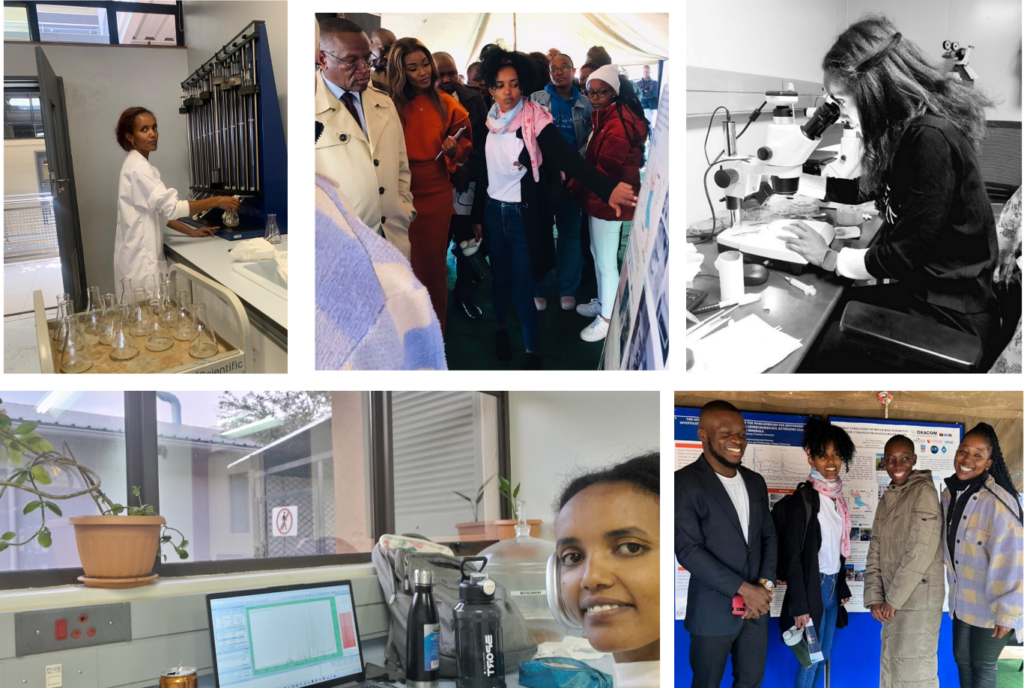
My research work so far…
I’m realizing more and more that time doesn’t wait, and that pushes me to embrace both the personal and academic journey ahead. Pursuing a PhD is a transformative experience: it’s not just about research, but about growing from a student into a future scholar and faculty member. I know it won’t be easy, but I truly believe it will be worth it. I’ve already embarked on my research journey, and with time, I feel like I’ve finally grasped the deeper purpose of my PhD it’s truly fascinating. Right now, I’m focused on analyzing my results, diving deeper into the complexities of my project: “Biostratigraphy and Sedimentological Characterization of the Late Pleistocene-Holocene Playa Lake Deposits, Makgadikgadi Basin, Northeastern Botswana: Implications for Paleoenvironmental and Paleoclimate Reconstruction”.
My supervisors tell me I’m on the right track, and despite all the challenges, they continue to support me. I know I’ve tested their patience with my revisions and mistakes, but they never give up on me. They believe that, with time, I will grow stronger in my writing and communication. That unwavering belief in me means a lot. But if I’m being honest, I’m the one who sometimes feels like giving up. Then I remind myself how far I’ve come and how much my mentors have invested in me. I tell myself, “Trhas, stop complaining, stop procrastination, and work hard. Be proud of the people who lift you up and make you smile.” That’s my personal motivation. And no matter what, the motivation from my supervisors is always there.
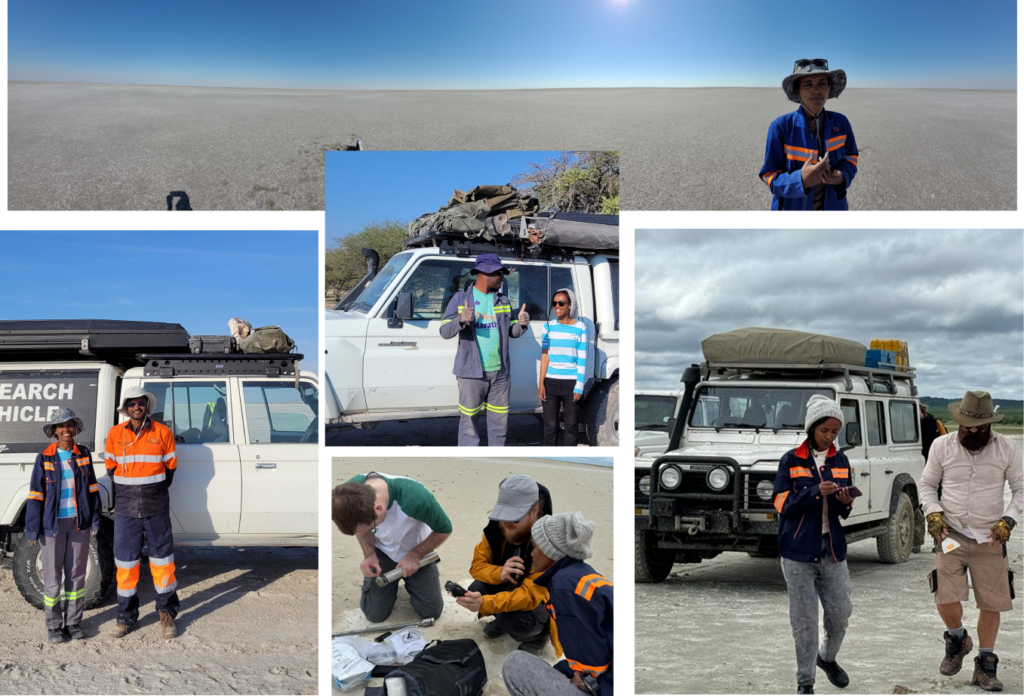
PAPSSN effort
As part of the PAPSSN Mobility initiative to support meaningful research projects, I was fortunate to receive a brand-new laptop through my research budget. The scholarship also provides crucial financial support, including a settlement allowance of 900 euros, an additional 900 euros dedicated to female scholars, and a 900-euro monthly stipend.
I am deeply grateful to the Pan African Planetary and Space Science Network (PAPSSN), especially Prof. Fulvio Franchi (now at the University of Bari, Italy) and Mrs. Chakandinakira Gadibotsile (BIUST) the project coordinators and the entire selection committee. Their patience and willingness to give me not just a second, but even a third chance, have allowed me to become a beneficiary of this incredible project.
Additionally, I extend my heartfelt appreciation to the Botswana International University of Science and Technology community, as well as all my friends and colleagues, for their unwavering support.
And of course, I am thankful that Botswana is such a peaceful country, full of kind and welcoming people!
Thank you for giving me the opportunity to share my story, it truly means a lot!
Peace for all!!!


